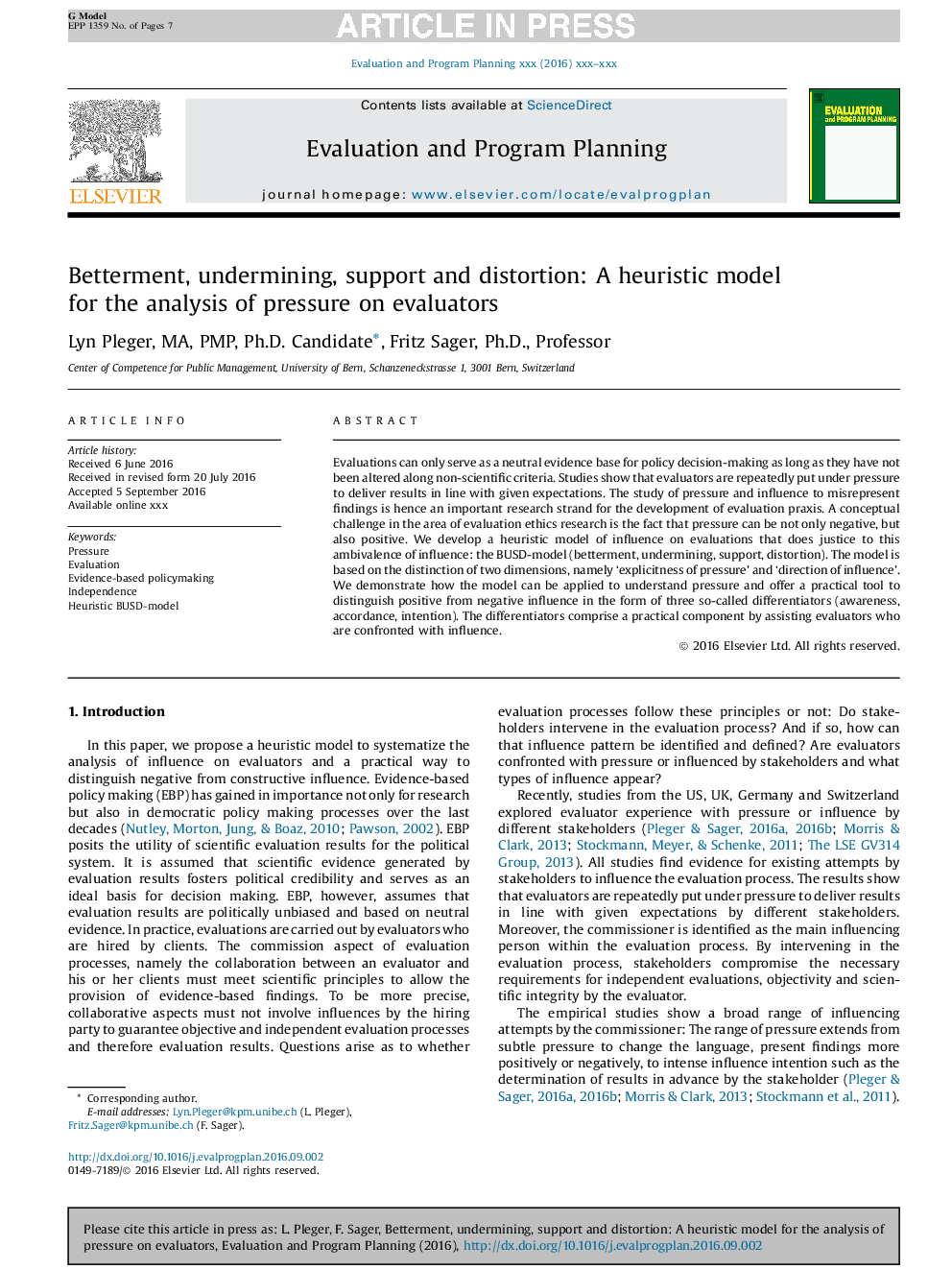| Article ID | Journal | Published Year | Pages | File Type |
|---|---|---|---|---|
| 6792020 | Evaluation and Program Planning | 2018 | 7 Pages |
Abstract
Evaluations can only serve as a neutral evidence base for policy decision-making as long as they have not been altered along non-scientific criteria. Studies show that evaluators are repeatedly put under pressure to deliver results in line with given expectations. The study of pressure and influence to misrepresent findings is hence an important research strand for the development of evaluation praxis. A conceptual challenge in the area of evaluation ethics research is the fact that pressure can be not only negative, but also positive. We develop a heuristic model of influence on evaluations that does justice to this ambivalence of influence: the BUSD-model (betterment, undermining, support, distortion). The model is based on the distinction of two dimensions, namely 'explicitness of pressure' and 'direction of influence'. We demonstrate how the model can be applied to understand pressure and offer a practical tool to distinguish positive from negative influence in the form of three so-called differentiators (awareness, accordance, intention). The differentiators comprise a practical component by assisting evaluators who are confronted with influence.
Keywords
Related Topics
Health Sciences
Medicine and Dentistry
Public Health and Health Policy
Authors
Lyn (Ph.D. Candidate), Fritz (Professor),
